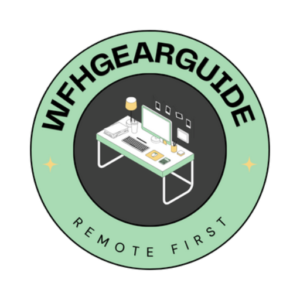Maybe it’s time we go into the doctor’s office instead of consulting online resources.
In a surprising twist, Internet Brands, the California-based conglomerate that owns WebMD, recently released a video with a stark message for its workforce: Return to the office or else. This video, shared on the company’s public Vimeo channel, was initially intended for internal use. It features CEO Bob Brisco sternly advising employees to stop working remotely and make their way back to the office.

This two-minute video showcases Brisco’s direct approach, where he emphasizes that the time for negotiation or requests has passed, and now it’s about compliance. The video’s peculiar elements include a stock image of a remote worker attending a video call in casual attire from his kitchen and a Google Hangout screen displaying a message that seems to imply that remote workers are not serious or professional.
To see the full video, consider joining our mailing list for all news and resources for remote work.
Strikingly, the video concludes with a montage of people dancing to “Iko Iko,” with the lyrics “Joc-a-mo-fee-no-ah-nah-nay” on display, which the company interprets as a strong message to employees, akin to “We mean business” or “don’t mess with us.” This interpretation appears to be sourced from online translations, including those from The Grateful Dead’s website, known for their performance of the song.
The irony of this situation is not lost, considering Internet Brands, a company that prides itself on innovation and owns multiple web properties like Medscape, Lawyers.com, and CarsDirect, is enforcing a seemingly outdated return-to-office mandate. This is particularly contradictory given the increasing evidence supporting the benefits of remote work. Studies have consistently shown that remote work can significantly boost innovation and productivity. Employees working remotely often report higher levels of focus, creativity, and overall job satisfaction, which can lead to more innovative ideas and efficient work processes.
Despite this, the company, under Brisco’s guidance, has chosen to take a step back by insisting on traditional office attendance. This move has sparked discussion and criticism within the industry, especially as it contradicts the growing body of research that highlights the advantages of remote working environments.
The video’s reception among employees was mixed, with one staff member commenting on Blind, an anonymous professional networking platform, that the acting in the video was reminiscent of low-budget productions. This sentiment underscores the disconnect between the company’s forward-thinking facade and its regressive workplace policies.
Will the return to office actually boost productivity and collaboration, or will it hinder employee productivity and cause division that leads to churn and decreased output? This is one of the many real-time case studies for executives to pay attention to as they weigh the pros and cons of returning to office.

 Top Articles
Top Articles 

